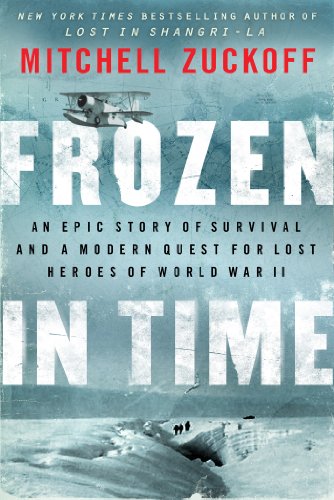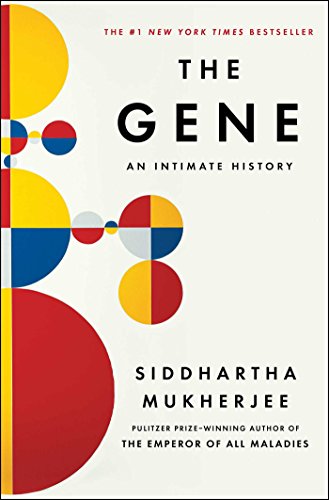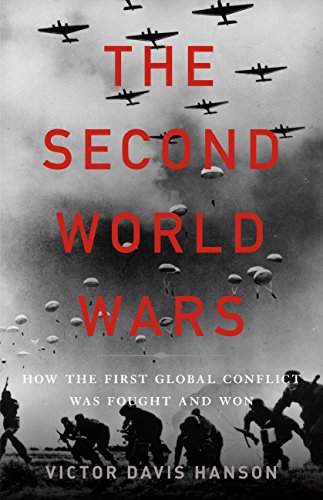General Nonfiction
- You are here:
- HOME
- Books Management
- General Nonfiction


When we were taught how to read growing up, we were taught to read slowly and focus on every single word. These poor reading habits hold us back, and it’s why so many people don’t enjoy reading.
You see, your brain is a lot like Goldilocks. When you read too slow, your mind wanders, you get distracted, and reading feels like a chore. When you try to read too fast, you can't comprehend what you're reading. The key is to read at the right speed using the best reading strategies for your learning type.
In this short read, you’ll discover proven strategies to read faster without having to:
This book combines the best lessons from speed reading techniques, neuroscience, and modern technology to allow you to read faster and comprehend more than you ever thought possible—and you can start to see the results today!
I was always a slow reader. I could never focus long enough to read an entire book. I often forgot what I had just read, and had to re-read sentences over and over again. Reading was a frustrating, slow, and painful experience, so I tried to make up for my poor reading skills by studying more and working harder.
But studying hard will only get you so far when you're using the wrong strategies. I wanted to be able to read more, learn more, and, most importantly, remember more of what I was reading.
If you’ve quit reading more books than you can remember because of boredom or frustration, this book will change your life—and every book from now on will be a “quick read” for you.
Everything changed when I developed a better way to read entire books very fast…
I was able to read four large books in my first week of using these methods.
In Read Better Faster: How to Triple Your Reading Speed and Comprehension Without Speed Reading, Skimming, or Skipping you will discover:
This book is perfect for you if:
I encourage you to invest in yourself by learning these new reading strategies so you can read faster, remember more, and gain more knowledge faster than you ever thought possible. You'll be able to use your new reading superpower for the rest of your life.
Reading faster with improved memory and recall will open up an entirely new world for you, and it’s just one click away.

“Brilliant. . . . Lewis has given us a spectacular account of two great men who faced up to uncertainty and the limits of human reason.” —William Easterly, Wall Street Journal
Forty years ago, Israeli psychologists Daniel Kahneman and Amos Tversky wrote a series of breathtakingly original papers that invented the field of behavioral economics. One of the greatest partnerships in the history of science, Kahneman and Tversky’s extraordinary friendship incited a revolution in Big Data studies, advanced evidence-based medicine, led to a new approach to government regulation, and made much of Michael Lewis’s own work possible. In The Undoing Project, Lewis shows how their Nobel Prize–winning theory of the mind altered our perception of reality.

NATIONAL BESTSELLER
Developing video games—hero's journey or fool's errand? The creative and technical logistics that go into building today's hottest games can be more harrowing and complex than the games themselves, often seeming like an endless maze or a bottomless abyss. In Blood, Sweat, and Pixels, Jason Schreier takes readers on a fascinating odyssey behind the scenes of video game development, where the creator may be a team of 600 overworked underdogs or a solitary geek genius. Exploring the artistic challenges, technical impossibilities, marketplace demands, and Donkey Kong-sized monkey wrenches thrown into the works by corporate, Blood, Sweat, and Pixels reveals how bringing any game to completion is more than Sisyphean—it's nothing short of miraculous.
Taking some of the most popular, bestselling recent games, Schreier immerses readers in the hellfire of the development process, whether it's RPG studio Bioware's challenge to beat an impossible schedule and overcome countless technical nightmares to build Dragon Age: Inquisition; indie developer Eric Barone's single-handed efforts to grow country-life RPG Stardew Valley from one man's vision into a multi-million-dollar franchise; or Bungie spinning out from their corporate overlords at Microsoft to create Destiny, a brand new universe that they hoped would become as iconic as Star Wars and Lord of the Rings—even as it nearly ripped their studio apart.
Documenting the round-the-clock crunches, buggy-eyed burnout, and last-minute saves, Blood, Sweat, and Pixels is a journey through development hell—and ultimately a tribute to the dedicated diehards and unsung heroes who scale mountains of obstacles in their quests to create the best games imaginable.

Small changes work. In this practical ebook, wellness expert Brett Blumenthal reveals how to hone in on the mind as the foundation of overall health and well-being. She presents one small, achievable change every week—from developing music appreciation to eating brain-boosting foods, practicing mono-tasking, incorporating play, and more. The accumulation of these lifestyle changes ultimately leads to improved memory, less stress, increased productivity, and sustained happiness. Backed by research from leading experts and full of helpful charts and worksheets, 52 Small Changes for the Mind provides a road map to a better life—and proves that the journey can be as rewarding as the destination.

Stress and Anger Expert Doc Orman, M.D. Shares His Secrets To Curing Anger
If you want to be happier, healthier, and more peaceful, this book is for you! Doc Orman, M.D., author of the award-winning book, The 14 Day Stress Cure, has conducted seminars and workshops on reducing stress for doctors, nurses, veterinarians, business executives, students, the clergy, and even the F.B.I.
In this life-changing book, you will discover:
How To Eliminate Anger Before It Kills You
Dr. Mort Orman has been studying irritability and the impact of anger on your health, success, and life for years. In his research, he found a proven strategy that works for getting rid of anger and irritability fast, without drugs or medications.
By using the same strategies the FBI uses to retrain your nervous system and habitual responses, you can say goodbye to unnecessary anger and rage. You’ll still have it if you need it, but it will never again control you or ruin your relationships.
When you eliminate negative thoughts and energy from your life, you'll feel a sense of calm an inner peace like you've never felt before.
This is the power of negative thinking—when you turn your negative thoughts around, you actually create more energy and power that moves you in the direction you want to go in your life faster than you've ever moved before.
So often in life we try to be right instead of being happy. We argue to protect our viewpoint when we could just as easily let the argument go and be happy.
Learn how to reprogram your mind and subconscious habits and never have another unnecessary argument again!
About The Author
MORT (Doc) ORMAN, M.D. is an Internal Medicine physician, author, stress coach, and founder of the Stress Mastery Academy. He has been teaching people how to eliminate stress, without managing it, for more than 30 years. Dr. Orman’s award-winning book, The 14 Day Stress Cure, is still one of the most helpful and innovative books on the subject of stress ever written. Dr. Orman and his wife, Christina, a veterinarian, live in Maryland.
You’ll love The Irritability Cure if you are a fan of Anger: Taming a Powerful Emotion by Gary Chapman, How to Stop Worrying and Start Living by Dale Carnegie, Who Moved My Cheese? by Spencer Johnson, or Love Yourself Like Your Life Depends On It by Kamal Ravikant.

Are you looking to realize greater self-love and personal power?
· Explore your perception of a Christian woman’s identity
· Learn empowering coping strategies
· Redefine your relationship with your body
· Apply Christian examples of mindfulness to your everyday life
· Transform personal/social/historic restrictions that impact your self-esteem
Strong Within: The Christian Woman’s Guidebook for Nurturing Self-Love and Personal Power will take you on a journey of personal growth. It will help you to address the most commonly encountered personal, social, and historic challenges that women face on daily basis, against the background of an empowering exploration of the Genesis account of Adam and Eve.
Each chapter will give you a fresh perspective on themes that are relevant to women’s everyday lives and Christian identity, such as how you experience your self-worth, relationships, or life’s purpose. Each chapter’s exercises and reflections will guide you in transforming your beliefs, thoughts, and feelings, to stay STRONG WITHIN!
Start your personal transformation today!

Frozen in Time is a gripping true story of survival, bravery, and honor in the vast Arctic wilderness during World War II, from the author of New York Times bestseller Lost in Shangri-La.
On November 5, 1942, a US cargo plane slammed into the Greenland Ice Cap. Four days later, the B-17 assigned to the search-and-rescue mission became lost in a blinding storm and also crashed. Miraculously, all nine men on board survived, and the US military launched a daring rescue operation. But after picking up one man, the Grumman Duck amphibious plane flew into a severe storm and vanished.
Frozen in Time tells the story of these crashes and the fate of the survivors, bringing vividly to life their battle to endure 148 days of the brutal Arctic winter, until an expedition headed by famed Arctic explorer Bernt Balchen brought them to safety. Mitchell Zuckoff takes the reader deep into the most hostile environment on earth, through hurricane-force winds, vicious blizzards, and subzero temperatures.
Moving forward to today, he recounts the efforts of the Coast Guard and North South Polar Inc. – led by indefatigable dreamer Lou Sapienza – who worked for years to solve the mystery of the Duck’s last flight and recover the remains of its crew.
A breathtaking blend of mystery and adventure Mitchell Zuckoff's Frozen in Time: An Epic Story of Survival and a Modern Quest for Lost Heroes of World War II is also a poignant reminder of the sacrifices of our military personnel and a tribute to the everyday heroism of the US Coast Guard.

After a long day of hard work, nothing helps you shake off your stress like a good massage.
Well, I’m here to tell you that giving a great massage can feel just as good as receiving one!I’m Shai Plonski, and I’ve been teaching Thai Massage for over fifteen years. I’ve helped over three thousand people across three continents rediscover the lost art of healing through touch, and in this book, I’m going to pass my most effective and beneficial techniques on to you.The truth is, you don’t need special equipment like a professional quality massage bed to give a great massage—in fact, you don’t even need any special training. Modern Thai Massage is a deeply meditative experience that comes from the heart.And while most people think massage is all about the person on the receiving end, I’m here to tell you that Thai Massage can be just as beneficial and relaxing for the practitioner. Practicing these powerful techniques can help heal your mind, body, and spirit in one incredible experience.This book will show you:
If you want better health, a calmer mind, and stronger, more compassionate relationships, I urge you to read The Joy of Giving Massage to begin improving your life today.If you’re a fan of The Massage Bible by Susan Mumford, Couple’s Massage Handbook by Helen Hodgson or Tantric Massage Beginner's Guide by Crystal Hardie and Rick Reynolds, you will love this book!

He says that's his best offer. Is it?
She says she agrees. Does she?
The interview went great—or did it?
He said he'd never do it again. But he did.
Read this book and send your nonverbal intelligence soaring. Joe Navarro, a former FBI counterintelligence officer and a recognized expert on nonverbal behavior, explains how to "speed-read" people: decode sentiments and behaviors, avoid hidden pitfalls, and look for deceptive behaviors. You'll also learn how your body language can influence what your boss, family, friends, and strangers think of you. You will discover:
Filled with examples from Navarro's professional experience, this definitive book offers a powerful new way to navigate your world.

"I have fallen in love with mapping worksheets! Let Nancy Sherr empower you on a comprehensive journey of self-discovery with practical guidance, actionable steps, and new ways to look at life’s circumstances—this book does not disappoint. Grab a copy and start stepping forward." —Kami Boley, author of Bree The Tree and The Gator Leaves Nothing Behind
"A beautiful compilation of wisdom and insight—this book defines the road to recreate a new, bright life. Nancy’s expertise, inspiring style, and transparency in sharing her personal stories are incredibly powerful. This is a winner." —Marina G., NYC
Expert motivator, career coach virtuoso, and self-empowerment guru Nancy Sherr, Personal & Professional Transition Expert shows you how to take the opportunity and challenge of change, that is so often unavoidable in your personal and professional landscape, and transform it to new levels while using that same energy to boost your physical, emotional and spiritual well-being.
In The Bravehearts Guide, Nancy Sherr, having stared down the dragons of Big Life Changes and reinventing herself professionally three times, has helped thousands reshape their mindset, while evolving into their best selves through navigating both personal and work-life transitions. Nancy firmly believes that every one of us can live to our fullest potential and create a life we love.
Focusing on four key concepts—Instincts, Courage, Resilience, and Gratitude—this is her life handbook that provides a blueprint for true empowerment as we navigate the chaos of epic change. Nancy offers advice, thoughtful and inspiring exercises for gaining clarity and achieving goals, and plenty of resources and motivation—all based on her own personal experiences, years of key research, observation, and field testing, sharing the art of staying centered, strong, and victorious through the turbulence of change. Most importantly, she shows you how to locate your greatest sense of purpose that will take you to the highest levels of performance and sustain you to weather life’s inevitable challenges.
The Bravehearts Guide is also Nancy's personal story—a chronicle of endurance that is as impressive as her lengthy list of rave reviews from her coaching clients and readers. Through the sudden loss of her mother at the age of six, she talks candidly about the strict but loving upbringing by her heroic father and how through that, she built the resiliency needed to ultimately transform and build a life and career she loves.
Nancy Sherr has dedicated her life to her two children, her two Hungarian Vizslas, and to living an active and adventurous lifestyle. She has wrapped her exuberant and optimistic spirit around her journey of self discovery which she graciously shares in her book to motivate others to make the most of their own Big Life Changes, and inspires her readers to achieve their ultimate well-being in all aspects of life and career.
The Bravehearts Guide is a prescriptive, candid review of Nancy’s evolution, offering fresh, unexpected career and life lessons, peppered with motivation, warmth and love, presenting them as an easy-to-follow journey map to help readers recognize their full potential and channel their passion into success. In essence, she directs the reader through the fires of change to emerge as a triumphant phoenix!
This gifted coach knows what it takes to thrive, not just survive in the modern day. Part confidante, part mentor, Nancy takes you by the hand and holds nothing back.

A step-by-step guide to the technical side of self-publishing for absolute beginners. It will teach you how to format your book in MS Word, prepare images for print, design your book cover using free tools, and more. You will get a general overview of everything you need to self-publish your first book the fast, free & easy way.

Are you wasting valuable time? Do you have trouble making decisions and taking action? Do you feel frustrated by unfinished to-do lists, missed deadlines, and abandoned projects?
If so, you'll love The 30-Day Productivity Plan - VOLUME II.
This how-to guide provides 30 quick-and-dirty action plans for overcoming 30 bad habits that are sabotaging your time management. Each habit is investigated to reveal its common triggers and explore how it cripples your productivity. You'll also receive a step-by-step blueprint for defeating each bad habit and reclaiming your time, clarity, and confidence in the process.
The 30-Day Productivity Plan - VOLUME II is filled with actionable advice you can put to use IMMEDIATELY to triple your productivity.
For example, you'll learn:
When you curb bad habits that waste your time and consume your attention, you can literally transform your life:
The 30-Day Productivity Plan - VOLUME II focuses on the small habits, routines, and stressors that secretly eat away at your ability to get things done. For example, you'll discover:
The bad habits that hobble your productivity often go unnoticed, allowed to do their dirty work beyond scrutiny. The 30-Day Productivity Plan - VOLUME II exposes 30 of them and gives you the tools to curb them once and for all. You'll learn:
The 30-Day Productivity Plan - VOLUME II is crammed with strategies designed to help you regain control of your time - at home and at your job.
Now's the perfect time to make a positive change in your life.

Do you find yourself trapped in older pre-conditioned thinking patterns and miss out on new opportunities? Do you wonder why despite good intentions you often struggle to solve problems? Do you often delay in decision-making?
How would your life change if you can independently observe and learn the art of thinking clearly? What if you could learn the most effective techniques followed by great thinkers like Leonardo da Vinci, Einstein, and business legends like Elon Musk, Warren Buffett.
Imagine having access to a fully loaded toolbox with sharpest thinking tool you could use to analyze every situation holistically? Imagine your confidence boosting up if you not only are aware non-serving thinking patterns but also master the effective thinking techniques followed by the high performers and getting things done faster.
Som Bathla, an avid reader, researcher and an Amazon best-selling author of multiple books reveals the answers to above and much more in his book THE INTELLIGENT THINKING.
THE INTELLIGENT THINKING is written as a succinct guide revealing most effective thinking strategies (though some might sound counter-intuitive) to address all your curiosity on how to think intelligently.
Here is what you will learn in THE INTELLIGENT THINKING
Albert Einstein once rightly said:
“The world we have created is a product of our thinking; it cannot be changed without changing our thinking.”
THE INTELLIGENT THINKING is for anyone and everyone who is convinced about the limitless potential of human mind and is sincerely looking for the ways to become an intelligent thinker.
Are you ready?

This is a very short, fun, interactive book. HEADPHONES are recommended.
Music is in all the right places...
Scientists are now revealing the underlying principles of the universe and of OUR EXISTENCE.
They are now in agreement.
If you feel even a bit of the chaos happening around you, know it's because we are being asked to EVOLVE, to shift, to embrace a far larger view of ourselves and our place in the universe. At our core, we are more powerful and peaceful than we know.
We must go inward and Onward. To a higher consciousness. A new earth.

The #1 NEW YORK TIMES Bestseller
A New York Times Notable Book
A Washington Post and Seattle Times Best Book of the Year
From the Pulitzer Prize–winning author of The Emperor of All Maladies—a fascinating history of the gene and “a magisterial account of how human minds have laboriously, ingeniously picked apart what makes us tick” (Elle).
“Dr. Siddhartha Mukherjee dazzled readers with his Pulitzer Prize-winning The Emperor of All Maladies in 2010. That achievement was evidently just a warm-up for his virtuoso performance in The Gene: An Intimate History, in which he braids science, history, and memoir into an epic with all the range and biblical thunder of Paradise Lost” (The New York Times). In this biography Mukherjee brings to life the quest to understand human heredity and its surprising influence on our lives, personalities, identities, fates, and choices.
“Mukherjee expresses abstract intellectual ideas through emotional stories…[and] swaddles his medical rigor with rhapsodic tenderness, surprising vulnerability, and occasional flashes of pure poetry” (The Washington Post). Throughout, the story of Mukherjee’s own family—with its tragic and bewildering history of mental illness—reminds us of the questions that hang over our ability to translate the science of genetics from the laboratory to the real world. In riveting and dramatic prose, he describes the centuries of research and experimentation—from Aristotle and Pythagoras to Mendel and Darwin, from Boveri and Morgan to Crick, Watson and Franklin, all the way through the revolutionary twenty-first century innovators who mapped the human genome.
“A fascinating and often sobering history of how humans came to understand the roles of genes in making us who we are—and what our manipulation of those genes might mean for our future” (Milwaukee Journal-Sentinel), The Gene is the revelatory and magisterial history of a scientific idea coming to life, the most crucial science of our time, intimately explained by a master. “The Gene is a book we all should read” (USA TODAY).

There is nothing worse than being in a relationship where you feel estranged, distant, unloved, uncared for, or experience never ending tension and conflict. It eats away at your self-esteem, your physical and psychological well-being, as well as your overall satisfaction with life.
Unfortunately, we have been taught many myths about obtaining happiness in relationships including:
• Find the “right” person, job, place to live, spiritual practice, business endeavor, lifestyle, or way of thinking, and you’ll be happy.
• Discovering your passion and purpose are the keys to happiness—once known your relationships will improve.
• Any good relationship requires compromise, and this will lead to your well-being.
• Loving yourself is the key to having a loving relationship.
• Good communication is the key to good relationships.
• Trust and respect are the core components to all good relationships.
While there are some kernels of truth in these myths, the reality is that in order to become happier in relationships you need to first develop characteristics within yourself that create the kinds of relationships you desire. This is the big secret to having satisfying relationships and "Independent Enough" will show you exactly how to accomplish this.
The most meaningful and lasting changes do not come from pleasing others. They don't come about by what others do for us. They come from looking inside yourself and within the context of your relationships and determining what you really need to develop.
With over thirty-five years as a therapist working with couples and as a sought-after public speaker, Larry Shushansky shares the secrets for creating the kinds of relationships you desire and deserve— regardless of what someone else is doing. Larry offers you a template for ending the craziness and pain that sometimes comes with relationships and will show you how to develop the internal resources needed for engaging in healthier, happier relationships.
Order a copy of "Independent Enough" today and begin to experience more joy and love within your relationships and within yourself.

What happened that changed the priest—the revered healer of antiquity—into a person of science? How was the modern doctor made?
Physician is Rajeev Kurapati’s earnest attempt to answer this question and others central to the practice of medicine. For instance, how have the advances of medical technology influenced society’s perception of death? How do physicians balance thinking with feeling when dealing with critically ill patients? How do we meet the needs of patients seeking a personal connection to their doctor in what may seem to be an emotionally deficient medical landscape? Is it possible to overcome some of the compromises we’ve had to make along the way? What is the promise of modern medicine and its limitations? And notably—as medical care becomes more and more digitized and automated, will the medical degree—a universal badge of respectability—continue to hold value?
Dr. Kurapati, a practicing hospital physician, succeeds in gracefully exploring the depths of what it really means to be a doctor—and a patient—at this time in our human history, and his blueprint for building a stronger future of healthcare is an important and valuable one.

This book is for everyone who longs to help their kids pause their electronics, grow their social skills, and develop lifelong relationships through highly engaging conversations!
In this book, you will discover:
• Why conversations matter and connecting with others is important.
• Three strategies to engage kids and keep the conversation going.
• Five tools to help children develop their social skills.
• How to use conversations to guide children toward positive change.
Then, dive into 131 creative, engaging, and fun conversations that will get your kids talking. This book is for children who desire to build face-to-face connections that develop into life-long friendships. It is also for parents, foster parents, teachers, coaches, youth pastors, mentors, and everyone who wants to help their kids to connect in an increasingly disconnected world!
Conversation Starters Include:
• If the zoo offered to let you keep one exotic animal as a pet, which animal would you take home with you?
• If you were principal of your school for a day, what is one school rule that you would change?
• No two snowflakes are exactly alike. No two people are the same either. What is something that makes you unique?

This book will make you smarter, more capable and more creative, super-fast - whatever your IQ.
Have you ever had a problem at home, work or in a relationship that you just couldn't figure out how to solve? Have you felt stuck and frustrated because you can't come up with a good solution? Maybe it's a problem that's been niggling at you for ages, draining your energy and making you unhappy. Or maybe it's an ambition or project which you can't seem to complete or achieve, no matter how hard you try – but it would make such a difference to your life if only you could.
Have you wasted precious time or money on ineffective solutions? Has the issue caused you stress or hung a cloud over your life? Has your potential suffered because you can't see how to achieve your goals?
How much better would your life be if you were able to overcome your obstacles super-fast? If you could have instant epiphanies rather than wasting your time spinning your wheels? Wouldn't you feel lighter and freer knowing that you can solve issues in a snap? Wouldn't life be easier and more enjoyable when you can simply eradicate problems and get on with your goals?
Blending science, psychology and philosophy, INSTANT WISDOM: 10 Easy Ways to Get Smart Fast will teach you tools, tweaks and techniques that will make you smarter in mere minutes or seconds, boosting your creativity and expanding your mental horizons. The strategies include methods that geniuses and peak performers use to get amazing results.
You will learn:
+ Einstein's top tool to be ultra-inventive (you can do this in your sleep)
+ The “Alice in Wonderland” technique that helps you learn anything (it's fast and fun)
+ A way to boost your creativity that is so simple that kids can do it (it's literally child's play)
+ How to fool your brain into being super-focused (an actor used this trick to land millionaire-making roles)
+ An ancient technique that will make you much wiser (a famous philosopher's secret weapon)
+ How to become cleverer doing things you love (this surprising method leads to happiness and success)
+ The tactic top athletes use for ultimate performance (but you don't even have to leave your chair for this)
+ A delicious way to boost your logic (granny knows this trick, but I bet you don't)
+ The “Smart Stranger” method for achieving instant insight (this is a genius way of solving any problem)
+ How to get great minds to improve your intelligence (no bribes required)
... and much more.
When you can boost your brainpower instantly, you will be able to solve personal problems much faster, become a better worker, save precious time on projects, and achieve your goals at lightning speed.
Instant Wisdom contains personal stories, surprising studies and real examples. It contains a variety of exercises, so you can use the tools immediately.
So, what are you waiting for? Do you really want to spend more time and energy stressing out over problems? Or do you want a whole set of easy tools that you can use to instantly be sharper in all areas of your life?
Get INSTANT WISDOM now!

A definitive account of World War II by America's preeminent military historian
World War II was the most lethal conflict in human history. Never before had a war been fought on so many diverse landscapes and in so many different ways, from rocket attacks in London to jungle fighting in Burma to armor strikes in Libya.
The Second World Wars examines how combat unfolded in the air, at sea, and on land to show how distinct conflicts among disparate combatants coalesced into one interconnected global war. Drawing on 3,000 years of military history, Victor Davis Hanson argues that despite its novel industrial barbarity, neither the war's origins nor its geography were unusual. Nor was its ultimate outcome surprising. The Axis powers were well prepared to win limited border conflicts, but once they blundered into global war, they had no hope of victory.
An authoritative new history of astonishing breadth, The Second World Wars offers a stunning reinterpretation of history's deadliest conflict.